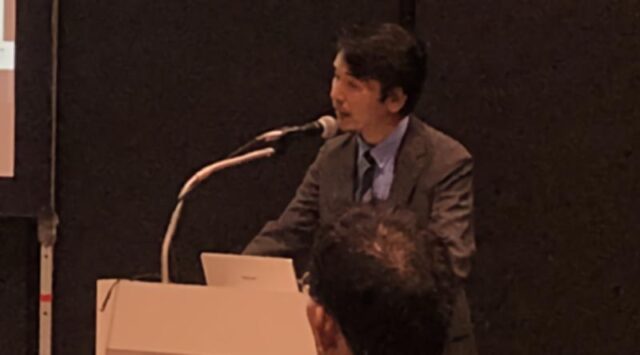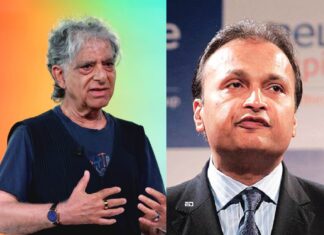
“One of the biggest obstacles was that we started our business in 2020, the year of the social changes caused by the new coronavirus. However, the difficulties we faced in the early days of the company were both a challenge and an opportunity. This is because we are all facing the same challenges, and the voices we hear from our clients in these situations are their true needs. In the early stages of our business, we are careful not to pursue a rapid scale-up and miss out on the individual and universal needs that can only be understood at this time.”
Meet Shinya Okimoto a director of Chong Wei Gong Zuo Shi, LLC known for its research and analytics initiative. While the company’s work range from research and publishing of industry analysis to conducting lecture at conferences it is in the story behind Shiyan’s vision and determination that is quite captivating.
“We are planning to publish several research and analysis reports in 2021, including one on the subject of micro-LEDs. Micro-LEDs have been used in large displays and televisions, at the same time there is a growing movement towards their use in wearable devices such as smart glasses and smart watches, so it is exciting to see this trend. And it was this micro LED that encouraged me to start my own business.”
Born December 30, 1979 in Australia. Shinya Graduated from Toin Gakuen High School Science and Mathematics Department. After earning a bachelor of arts (English and American literature major) at university, he obtained an MBA from an American university while pursuing full time work.
Engaged mainly as a sales position since 2003. Shinya participated in new product development and launch operations at multiple companies in the manufacturing industry.
With an extensive background in manufacturing, market analysis, research and development ,Shinya launched his company in 2020.
In this conversation we sit with Shinya as to learn his drive behind launching his first company during uncertain times, what future lies ahead for manufacturing and market research industries. Though the subject mainly touches on a particular industry it is certain those sights can help startups and company navigate in the midst of environmental changes across multiple industries.
Thank you so much for joining us! Can you tell us what inspired you to kick start your initiative?
I attended an international conference on micro-LEDs in Nanjing, China in December 2019. Actually, I attended this conference when I visited Nanjing to recuperate for health reasons. At the time, I was working as a company employee, conducting market research and also while at the same time giving many lectures.
The topics of my lectures were wide-ranging, and although the main topic was micro-LEDs, I was also involved in topics such as automated driving, micro-biome, regenerative medicine, lithium-ion batteries, electric vehicles, human-centric lighting, hemostatic agents, and talc. I was covering so many themes, it was almost driving me crazy.
Preparing materials for lectures was also beyond the scope of my daily work, so I had to sacrifice my private time to work on it. When I visited Nanjing, I had not yet made up my mind to start my own business.
As I strolled through the Ming Xiao Mausoleum, I was at a loss. Rather than recuperating, I was feeling frustrated at being away from my labor. In the midst of that, I attended an international conference on micro-LEDs.
At the conference, active discussions on micro-LEDs were held mainly by Chinese and Taiwanese participants, and the conference reports were presented by 20 presenters in a fast-paced 20-minute cycle.
The contents included not only mass transfer, but also process improvement, performance enhancement, driver IC, mass inspection, and mass repair. In Japan, where I am located, we seem to be somewhat reluctant to tackle the subject of micro-LEDs, but I felt that at this conference, they are focusing on micro-LEDs as the future that is definitely coming. I was also reminded that there are developers in Japan who are struggling to bring the emerging technology to the world at any cost. I understood that the common desire of these developers was a rebellious spirit of “not resting on past successes” and strong expectations for a bright future. It was on the flight from Nanjing to Japan when I realized that I had to carry on those enthusiasm, and thus I decided to start my own business.
Can you share the biggest challenges that you had to overcome since you started this initiative?
One of the biggest obstacles was that we started our business in 2020, the year of rapid social changes caused by the environmental shift. However, the difficulties we faced in the early days of the company were both a challenge and an opportunity. This is because we are all facing the same challenges, and the voices we hear from our clients in these situations I believe are their true needs. In the early stages of our business, we are careful not to pursue a rapid scale-up and miss out on the individual and universal needs that can only be understood at this time. On the other hand, though it has been a long time since the terms “IoT” and “AI” have been used, as digitalization continues to advance, we are in a situation where we will be left behind if we do not pursue with agility.
Could you share any tips on how companies can navigate our current global dynamic and what future lies ahead for your initiative?
Anita Roddick, the founder of The Body Shop, gave me a lot of inspiration when I started my business. Her philosophy that “a company should combine social contribution with business” existed long before the SDGs were born, and we believe that the company is one of the most important companies to learn from today. We also do business with overseas companies. The more international the environment, the greater the risk of conflicts due to differences in values. We believe that the ability to make breakthroughs in resolving such issues depends on the universality of each company’s philosophy or mission, and whether or not it is appropriately shared within the company.
The only way to change the environment around us first is to change ourselves. The mission of our company, “to create a fair place for people to work and live,” is to contribute to the formation of a sustainable society, and we are motivated by the need to constantly update and improve ourselves.
The word “Oki” in our company name is pronounced “Chong” in Chinese, which means to push forward. We named our company GONG ZUO SHI, which means “Ghibli Studio” in Chinese, because we want to be an entertainer in the market. Although we are a Japanese company, we have tried to create an English company name that is diverse by incorporating ideas from Chinese, alphabetic characters, and Japanese animation culture.
Looking ahead
Our mission is to “create a fair place for people to work and live,” and we are focusing on Goal 10 of the SDGs, which is to “eliminate inequality among people and nations. Companies have an obligation to conduct fair activities and to create a corporate culture in which employees are actively involved in such a fair environment. In this sense, the role of leaders is very important, and they need to be skilled in understanding and respecting diversity and be ready to engage in continuous improvement.
Thanks for sitting with us Shinya, Lastly how can our readers follow your work.
Thank you for the opportunity please find more details of our initiative from our website.
https://www.chong-wei.com/
(Syndicated press content is neither written, edited or endorsed by ED Times)
Read more:



































